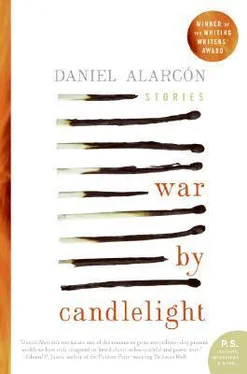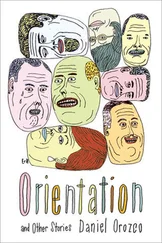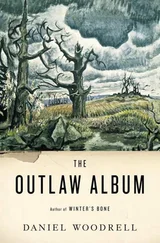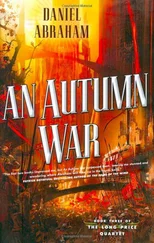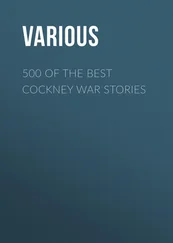He was ignoring the woman in front of him. “Thank you,” he said.
“They’re so violent.”
“I do not intend that.”
“It’s what I saw.”
“Is good you see this. Violence sometime happen.”
“I’m Ellen,” she said.
“Is nice name. My ex-wife name Elie.”
“You’re Wari.”
“I am.”
“How long will you stay?”
“I have ten more days on the visa,” Wari said.
“Oh.”
“But I do not know.”
There were more drinks and more intimate shouting over the cacophony of the bar. Ellen had a sweet smile and lips he could see himself kissing. His hand had fallen effortlessly on her knee. In the corner of the bar, Leah and Eric kissed again and again. How long will you stay I do not know. HowlongwillyoustayIdonotknow. Wari wanted to drop his glass on the floor, but he was afraid it wouldn’t shatter. He was afraid no one would applaud, no one would understand the beauty of that sound. The days were vanishing. Then he was in the street and Ellen was teaching him how to hail a cab. You have to be aggressive, she said. Does she think we don’t have cabs? he wondered, shocked. Does she think we ride mules? Just as quickly, he didn’t care. She meant nothing by it. He could feel the planet expanding, its details effaced. Who is this woman? What city is this? The evening was warm, and the sky, if you looked straight up, was a deep indigo. They were downtown. His head was swimming in drink. I should call my mother, he thought, and tell her I’m alive. I should call Elie and tell her I’m dead.
They stood on the street corner. Cab after yellow cab rolled past Wari’s outstretched arm. He was no good at it. Wari turned to find Ellen in a daze, gazing down the avenue.
“They were there, you know. Just right there,” Ellen said. She reached for his hand.
They were quiet. She pointed with two fingers in the direction of the southern horizon, toward the near end of the island. Wari stared at the yawning space in the sky, a wide and hollow nothing.
It had been three months and I thought things would have gotten easier. The children still cried at night. They still asked about their mother. On clear mornings, I took them to the cemetery, which was all that was left of the old town. From that hill we could see the remains of the valley, and the sharp scar where the mountain had slipped. The planes flew only on clear, cloudless days, and we watched for them in the skies above us: whirling, seesawing, their shaky wings trembling in the mountain wind. The children waved. We counted the parachutes drifting down and down. It was a game we played. I taught Mariela and Ximena to differentiate between German and French as we sifted through the aid packages. I helped Efraín pull the parachutes from the mud and clean them off.
The first day we huddled together to stay warm. The sky was heavy with dust after the landslide. We’d been at the cemetery burying the little one, who was only a few days old when he died, who Erlinda, my wife, hadn’t had the heart to name. The children didn’t understand. Erlinda had stayed in town, still recovering. We lowered him into the earth. Then there was a shaking. The mountain broke free. I held our three children close to me. A stew of ice and rock and mud rumbled down the valley.
We stayed at the cemetery that first night. Some of the coffins had been shaken from the earth. I made a lean-to with the planks of wood. The earth shook every hour or so, and I was afraid. Only the summit of the cemetery hill was still poking out from beneath the slippery mud. There was just room enough for me and my children.
On the second day, the sun came out, and the mud began to dry. I took two of the longest planks and told the children to wait for me. Efraín wanted to come, but I told him to stay and take care of his sisters. Help is coming, I said. I laid the planks out one in front of the other, and made my way across the mud toward where our house had been. I oriented myself by the plaza, which I could still make out. The tops of the four palm trees rose out of the mud, but the cathedral and the other buildings had been buried. I saw no one. The planks sunk a little into the mud as I walked.
I stepped over the buried town. We’d moved here from the south end of the valley when it was time to start a family. We’d made a life here. I tended herds I did not own. Erlinda sold what she could in the market. We worked and we saved. We’d tried to buy a small plot of land on the eastern folds of the mountains, but had been spurned. Those lands are reserved for important families, they’d told us, not for you. Just before the youngest was buried, we’d talked of leaving. To the city, to the sea. I remember Erlinda and her confusion. We worried about our children, about the future. We would never leave. This was home. It had been home.
I made it, finally, to where my house had stood, to where my wife must have been buried. I’d taken a cross from the cemetery, scavenged from one of the wrecked graves, and I planted it in the mud above my home. Erlinda, I prayed, had felt no pain and hadn’t had time to be afraid. She had died in her sleep, I prayed.
Across the valley, the mountain sides were green and blooming. My children were hungry. I sat and prayed, and then took my planks and continued on toward the hills.
I found herbs and fruits there, and grazing sheep and goats that now had no owner other than me. The sun warmed my cheeks. Across the valley, across the muddy strip of earth, I saw the cemetery hill. The children sat together; I waved to them. We would be better off here, I decided. These were the best lands. I went back for the children. While the girls waited, Efraín and I made two more trips, crossing the thick mud with careful steps, carrying more planks. With the remains of the shattered coffins, we made a new home on the eastern slopes.
In the weeks after, Efraín seemed to be growing every day, and I was proud. He took care of the girls. He made my life easier. The girls asked him about their mother because they knew not to ask me anymore. Efraín gave them the same simple answer I had given them: that things were different now. This would usually set them crying, Mariela folding herself into her sister’s embrace. I would hold them, but I had nothing to give them. I tried to be strong. I dreamed of Erlinda every night. Each day I went to see her, to tell her about the children, about our new home. I told her I missed her. Every week or so, I pulled the cross out and replanted it so it wouldn’t tilt or lean as the mud settled. From our new home we could see everything, and everything, I told Erlinda, was ours: the cemetery hill, the four palm trees, the green eastern slopes, and the grazing herds. Erlinda, my wife, was resting.
Some days I stole away from the children. Efraín disappeared with his sisters to play and I to gather parachutes from the hillsides. I would find myself crying. I cried for the town and for my wife, for myself and the children. I cried for my fourth child, the buried child. The children seemed to have forgotten him: his smallness, his labored breathing, and even the events of that day. And I tried to forget him too: in the way of our grandparents, who withheld their love from a child until he had survived two winters. When I was Efraín’s age, I lost a sister. For a time, our home was quiet and heavy, but then she was buried and never spoken of again.
The children survived my moods. Sometimes I asked, “Do you remember where we used to live?” and their blank stares told me they hadn’t understood my question. I envied them and their youthful amnesia. Under the sweep of mountain sky, I felt alone.
“Where did we live?” I asked them.
“With Mother,” was all they ever said. We gave our emptiness a name. That name was Erlinda.
Читать дальше
